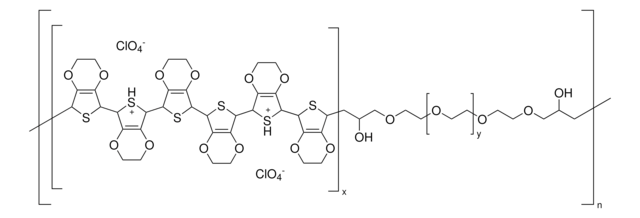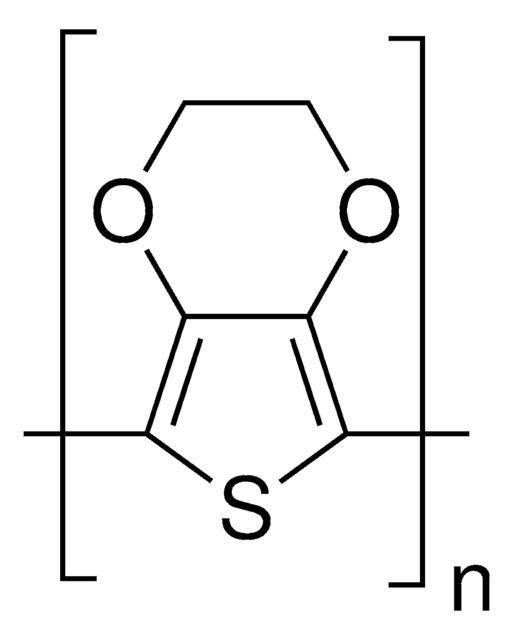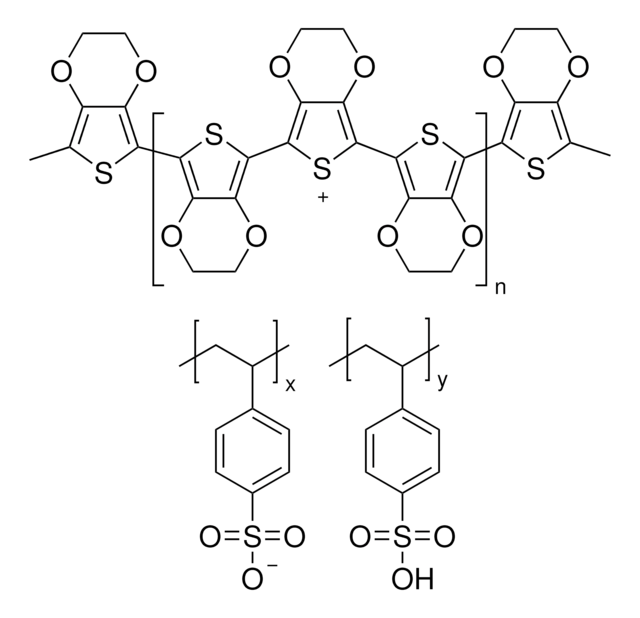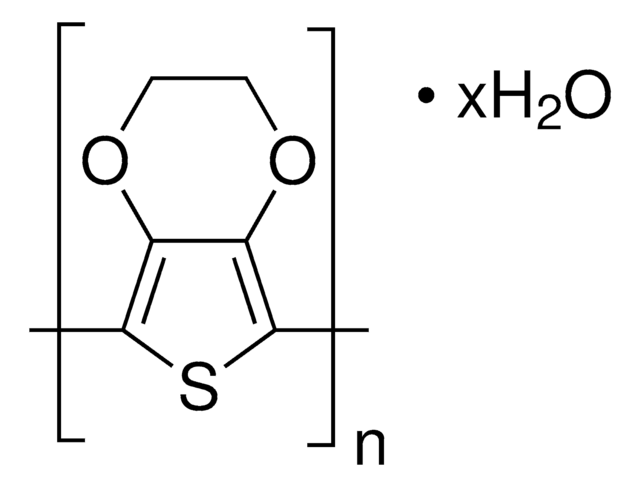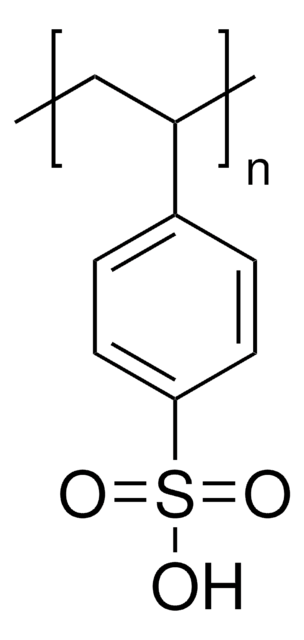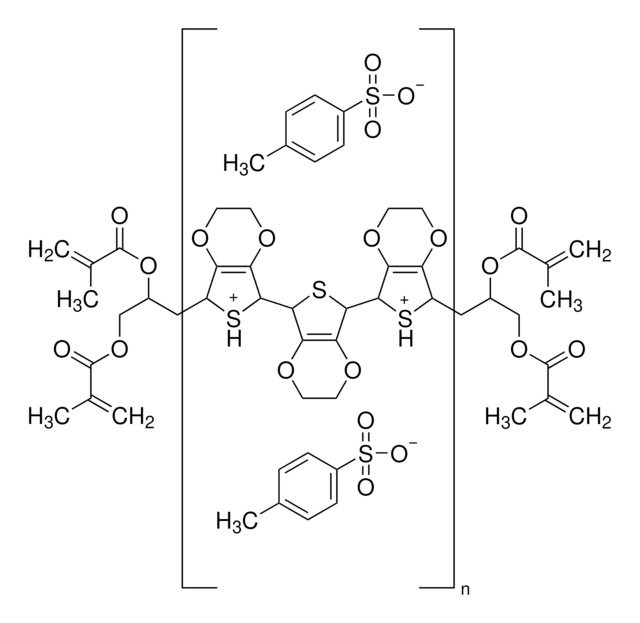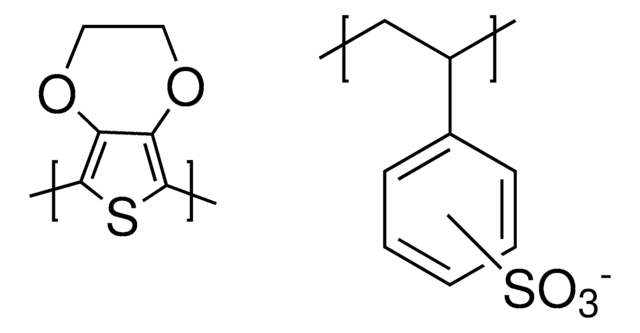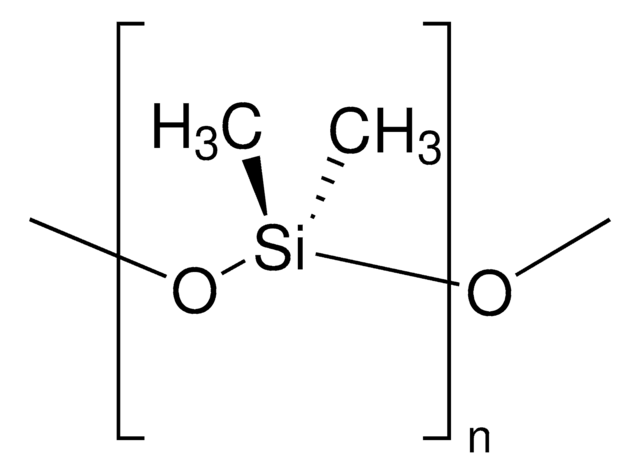736287
PEDOT
bis-PEG, lauryl terminated, 0.8 wt. % (propylene carbonate dispersion), contains perchlorate as dopant
Synonym(s):
Aedotron™ C3-PC, C12-PEG-block-PEDOT-block-PEG-C12, PEDOT:PEG
About This Item
Recommended Products
product name
Poly(3,4-ethylenedioxythiophene), bis-poly(ethyleneglycol), lauryl terminated, 0.8 wt. % (dispersion in propylene carbonate), contains perchlorate as dopant
form
liquid (dispersion)
Quality Level
contains
perchlorate as dopant
composition
acetonitrile, 4-8 wt. %
Aedotron™ TM-C3 polymer, 0.2-0.9 wt. %
propietary processing additive, 0.1-0.7 wt. %
propylene carbonate, 90-95 wt. %
propylene glycol, 0.0-0.3 wt. %
concentration
0.6-1.1 wt. %
0.8 wt. % (dispersion in propylene carbonate)
refractive index
n20/D 1.411
particle size
200-600 nm (in suspension)
conductivity
10-45 S/cm (bulk)
density
1.141 g/mL at 25 °C
Looking for similar products? Visit Product Comparison Guide
Related Categories
General description
Application
- Printed line width, 120 μm
- Printed line cross-sectional area, 14.1μm2
- Printed line average height, 70.6 ηm
- Sheet resistance, 2.0 kOhms/Square
- Resistivity, 14,021 μOhms·cm (71 S/cm)
- Fairly good optical clarity
Features and Benefits
Caution
Other Notes
Legal Information
Signal Word
Warning
Hazard Statements
Precautionary Statements
Hazard Classifications
Eye Irrit. 2 - Flam. Liq. 3
Storage Class Code
3 - Flammable liquids
WGK
WGK 2
Flash Point(F)
100.0 °F
Flash Point(C)
37.8 °C
Choose from one of the most recent versions:
Already Own This Product?
Find documentation for the products that you have recently purchased in the Document Library.
Customers Also Viewed
Articles
Progress in Organic Thermoelectric Materials & Devices including high ZT values of >0.2 at room temperature by p-type (PEDOT:PSS) & n-type (Poly[Kx(Ni-ett)]) materials are discussed.
The application of conducting polymers at the interface with biology is an exciting new trend in organic electronics research.
Optoelectronic devices such as light-emitting diodes (LEDs), solar cells, and light-emitting field effect transistors (FETs) that utilize organic materials as their light harvesting and/or charge transporting component have been the subject of much academic and commercial attention.
Our team of scientists has experience in all areas of research including Life Science, Material Science, Chemical Synthesis, Chromatography, Analytical and many others.
Contact Technical Service